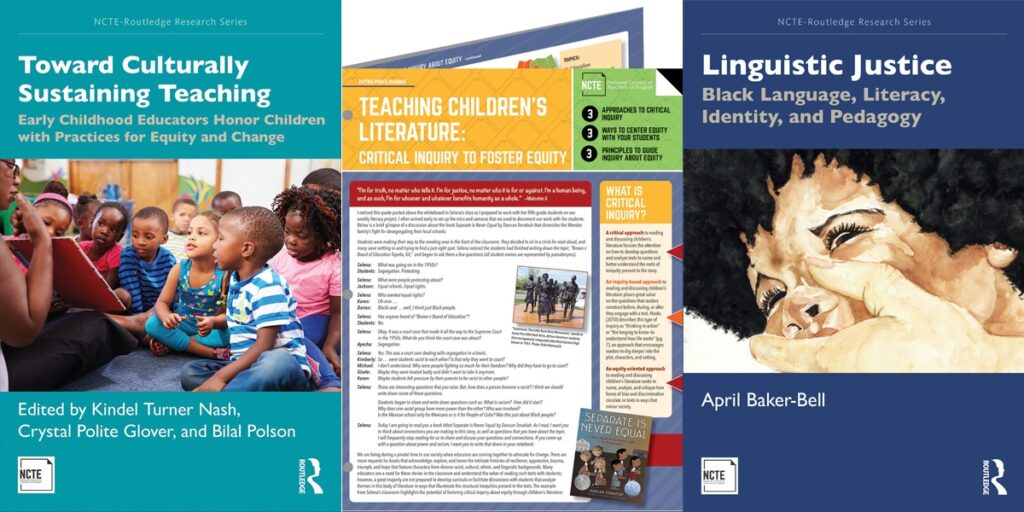The National African American Read-In is a groundbreaking effort to encourage communities to read together, centering African American books and authors. It was established in 1990 by the Black Caucus of the National Council of Teachers of English to make literacy a significant part of Black History Month. This initiative has reached more than 6 million participants around the world.
Much of the focus of the African American Read-In is on novels and trade books, but this is a great time to look at recent professional texts by NCTE-published authors as well. Have you had a chance to get acquainted with the following titles?
Toward Culturally Sustaining Teaching: Early Childhood Educators Honor Children with Practices for Equity and Change by Kindel Turner Nash, Crystal Polite Glover, and Bilal Polson (eds.) offers a timely resource for preservice teachers, teachers, scholars, faculty, and graduate students in language and literacy education, early childhood education, and culturally relevant, responsive, and sustaining teaching.
Bringing together theory, research, and practice to dismantle antiBlack linguistic racism and white linguistic supremacy, Linguistic Justice: Black Language, Literacy, Identity, and Pedagogy by April Baker-Bell provides ethnographic snapshots of how Black students navigate and negotiate their linguistic and racial identities across multiple contexts.
Teaching Children’s Literature: Critical Inquiry to Foster Equity, an NCTE Quick-Reference Guide (QRG) by Detra Price-Dennis, features a sample lesson, approaches to critical inquiry, ways to center equity with your students, principles to guide inquiry and equity, questions to pose about oppression and humanity, questions for reflection on equity and social change, library curation, literacy curriculum audit, background knowledge acquisition, web resources, and further readings.
Follow #AARI21 on social media for additional text suggestions for the African American Read-In.
It is the policy of NCTE in all publications, including the Literacy & NCTE blog, to provide a forum for the open discussion of ideas concerning the content and the teaching of English and the language arts. Publicity accorded to any particular point of view does not imply endorsement by the Executive Committee, the Board of Directors, the staff, or the membership at large, except in announcements of policy, where such endorsement is clearly specified.

